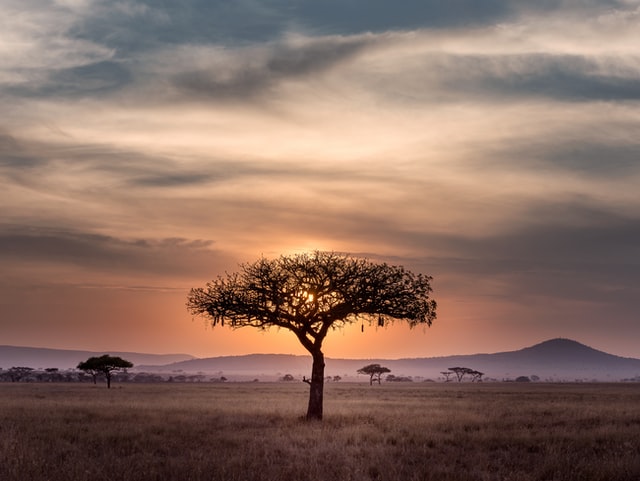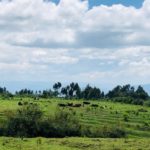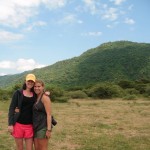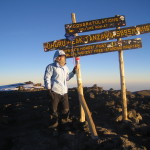What We Take for Granted in the West: Women’s Education

Over these past few weeks in Zanzibar, I’ve been thinking a lot about the amount and extent to which I’ve complained about my years in school. The days were too long, the readings too tedious, the teachers would chatter endlessly. Even in my first year of college, when I was ecstatic and determined to finally study what I was interested in, there were times when I refused to get out of bed for class, or failed to put in the time I needed to on an assignment. I would later admit that I could have done better.
Despite these shortcomings, I have never taken my access to education for granted. I appreciate what I have, and know that not everyone has the same opportunities. However, it wasn’t until traveling to Zanzibar with America’s Unofficial Ambassadors, and working at the Forum for African Women Educationalists (FAWE) that I came to a more important realization. As an NGO that focuses on providing women and girls with equal opportunities and resources to education, I saw that it isn’t simply that education shouldn’t be taken for granted. Rather, I became aware of all the smaller, interconnected factors that enabled me to attain one.
On my third day of work at FAWE, I took a field trip to the Milele Foundation, one of FAWE’s partners and donors, with my boss Hinda and colleague Nassra. A woman named Mary-Bennah from Barefoot College–an NGO focused on technology transfer and the empowerment of women–pitched us an idea about sustainable menstrual health. She passed around reusable pads—flimsy pieces of hot pink cotton. She fervently explained how women in rural communities often use old mosquito nets as a substitute, and how girls’ school attendance rates drop once they begin menstruating due to lack of hygienic supplies, plus cultural taboos.
Mary-Bennah explained that these reusable pads could be distributed to girls and women, enabling them to continue attending school and work. Moreover, Mary-Bennah is committed to creating a more sustainable, grassroots solution, by giving manufacturing and distribution power to the women who would use the feminine hygiene products. She hoped that FAWE could integrate the reusable pads into its already existing programs, such as by training its “Mothers Groups,” or by providing pads to female students as part of bursary and scholarship packages.
She fervently explained how women in rural communities often use old mosquito nets as a substitute for pads, and how girls’ school attendance rates drop once they begin menstruating due to lack of hygienic supplies, plus cultural taboos.
Hinda and Nassra exchanged glances, and I knew that while they were completely supportive of Barefoot’s initiative, they would not be able to cover the additional costs needed to implement the project. “We will see,” Nassra said.
Initially, I thought this would be a meeting about reproductive health. In reality, it was about the economic hardships, political apathy, and social and cultural restrictions placed on Zanzibari women every day. And yet, the tools we need to fight these restrictions – like flimsy pieces of hot pink cotton – are too expensive. I left the meeting feeling ashamed that I used to skip school because I felt like sleeping in, while Zanzibari girls are forced to skip school because of their menstrual cycles. It was three hours into my third day of work at FAWE, but I had already been exposed to what seemed like a never-ending list of struggles for these students.
Before she left, I thanked Mary-Bennah for the work she was doing and for informing me about this important issue. It was hard to digest. But what was even harder to process was the fact that even NGOs like FAWE, organizations that do incredibly innovative and impactful work for underrepresented women and girls, are still fighting for the resources needed to invest in projects like Barefoot College. Providing equal access to education is more than just getting girls inside the classroom. It is a complex puzzle, with countless preliminary challenges involving safety, health, poverty, religion, and culture. Solving these problems will take time and money—resources that NGOs like FAWE don’t always have. Until we make the education and well-being of women and girls a global priority, this situation will never change.
I used to skip school because I felt like sleeping in, while Zanzibari girls are forced to skip school because of their menstrual cycles.
I recently read a speech by President Obama, in which he spoke about the importance of women’s education and letting girls learn. He explained that, “when women have equal futures, families and communities and countries are stronger. When they get an education, that means their children are getting an education. This is a fact.”
According to UNICEF, Sub-Saharan Africa (where FAWE operates) has the lowest proportion of countries with gender parity – only two out of thirty-five countries. Every day I spend in Zanzibar I witness the importance of educating women and girls, and I think about how powerful education can be in the hands of those who truly know its value. At work, I’ve watched Hinda bang her fist on the palm of her hand, preaching that girls need to be taught how to think, not what to think.
I’ve heard my fellow Unofficial Ambassadors teaching in Zanzibari public schools assert that their female students are often more eager to learn and be challenged. When I walk to work in the morning I’ve seen exuberant five-year-old girls dressed in matching uniforms, sprinting past me to get to school with a woman standing behind them, hands clasped in front of her, gazing at the kids with pride.
These are the people that we need to invest in; these are the people that know how to make a difference in their communities.
Photo for What We Take for Granted in the West: Women’s Education by Unsplash.








